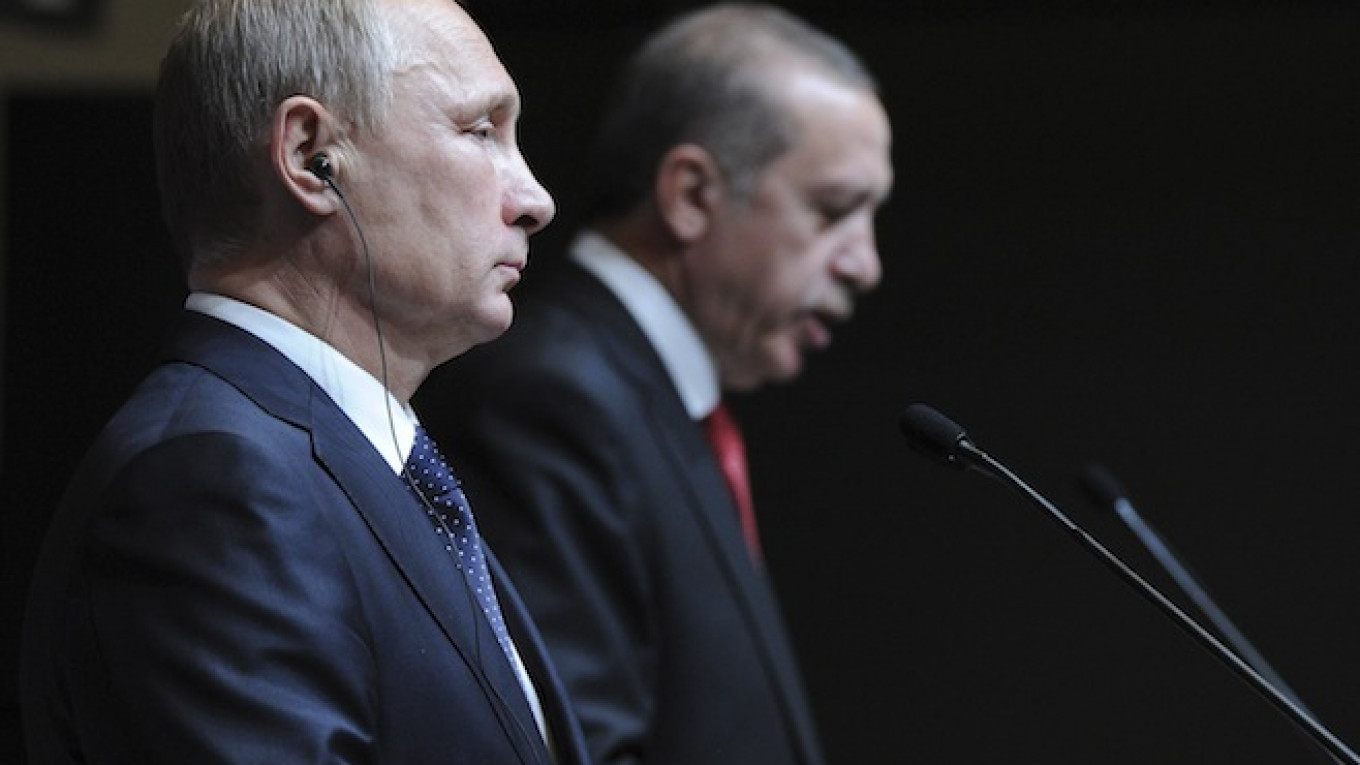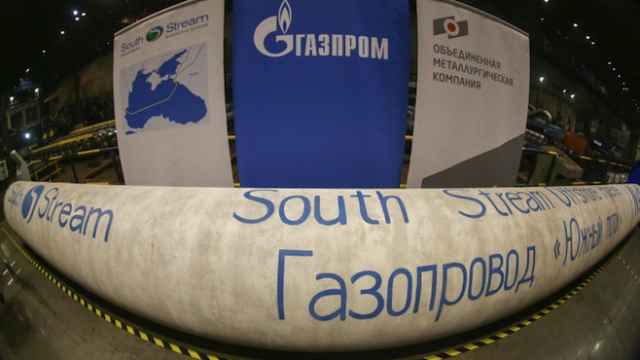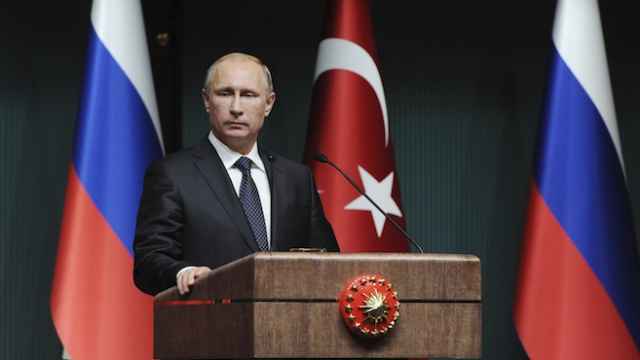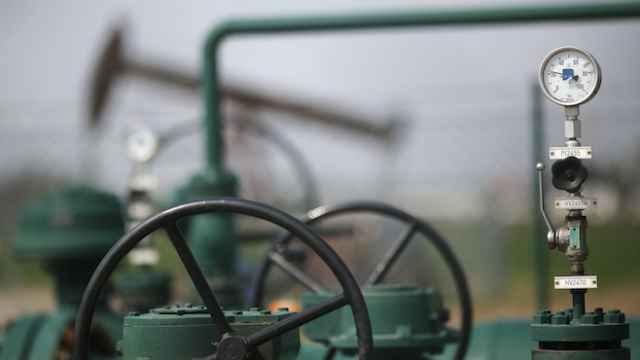The European Union's diplomatic victory in forcing the Kremlin to cancel its South Stream pipeline also gives Brussels a headache: how to come up with an alternative source of secure natural gas supply for Southeastern Europe.
Though it became politically toxic after the crisis in Ukraine, the pipeline made sense for countries such as Serbia, Bulgaria and Hungary because it offered a supply of gas that did not pass through Ukraine and so was at less risk of disruption.
Other ideas have been floated that would give Southeastern Europe those secure alternative supplies, but none are as far advanced as South Stream, leaving the countries in the region to face several years of uncertainty.
The pipeline would have transported Russian gas under the Black Sea, making landfall in Bulgaria and then passing through Serbia and Hungary into Austria. Russia on Monday announced it was dropping the project.
It fell victim to stalling European demand for gas and plunging energy prices, but also to opposition from the European Commission, which forced Bulgaria to put construction on hold amid confrontation with Russia over Ukraine.
In Sofia, Deputy Prime Minister Tomislav Donchev said Bulgaria now expects "special attention" from the EU to mitigate the damage, and Prime Minister Boiko Borisov would emphasize that point when he visits Brussels next week.
"If there is no project, this is a loss for Bulgaria," Donchev told reporters. "Bulgaria cannot be a bargaining chip in this complex geopolitical situation. It cannot be put in such a role."
Fragile Supplies
For some Southeast European countries, South Stream was an insurance policy against a repeat of January 2009, when a pricing dispute stopped gas transiting Ukraine, leaving them with fuel shortages in subzero winter temperatures.
At the time in the Bosnian capital Sarajevo, there was panic buying of electric heaters, while in Bulgaria, schools and kindergartens closed because they had no heating.
"It's a lose-lose for everybody. There is a bunch of countries, which really have a security of supply problem," an EU source, who did not want to be identified, said of the decision not to go ahead with South Stream.
South Stream also offered countries along its route — all of them struggling with budget deficits — the prospect of much needed transit fees, and jobs from construction.
The Serbian economy stood to make more than a billion euros just from construction of its leg of South Stream.
"Would it have been better had we had South Stream? Absolutely," Serbian Prime Minister Aleksandar Vucic was quoted as saying by state television. "We are paying the price of a conflict between big powers."
What's Next?
The focus in many states is now turning to what could fill the supply gap left by South Stream.
The most viable Western-backed option, the Nabucco pipeline to bring gas from the Caspian Sea through Turkey to Bulgaria and on to Austria, was shelved in part because there was not enough demand to sustain both it and South Stream.
A solution on the agenda now is a proposal to link up Slovakia's gas hub — which is fed by supplies from a variety of sources — to the Balkans by running a pipeline across the southwestern corner of Ukraine and through Romania to Bulgaria.
"Given the circumstances it is the economically and strategically best solution available," Tomas Marecek, chairman of Slovak pipeline operator Eustream, told Reuters.
A proposal to build a liquefied natural gas plant on the Croatian island of Krk is coming into renewed focus. Tankers carrying Qatari, Algerian or eventually U.S. gas would unload there, and the gas could be shipped on to Hungary and the rest of the Balkans. The U.S. government is a supporter.
"The new development [canceling South Stream] certainly increases prospects for the Krk terminal to be implemented as a viable alternative supply route," a Croatian economy ministry source said on Tuesday.
A third option is the Trans-Adriatic Pipeline (TAP). Like Nabucco, it is intended to bring gas from Azerbaijan's Caspian Sea fields through Turkey and on to Europe. The TAP consortium declined to comment.
Kristalina Georgieva, the European Budget Commissioner, said on Tuesday the EU would speed up work to help provide more energy security for Southeastern Europe, including by financing gas connectors between Bulgaria, Romania and Greece.
Brussels will need to respond quickly because Southeastern Europe will now look to it for help, especially since the EU played a big role in killing off South Stream.
"The onus will be on Europe," said Emily Stromquist, head of Russian energy analysis at Eurasia Group, a political risk research firm.
A Message from The Moscow Times:
Dear readers,
We are facing unprecedented challenges. Russia's Prosecutor General's Office has designated The Moscow Times as an "undesirable" organization, criminalizing our work and putting our staff at risk of prosecution. This follows our earlier unjust labeling as a "foreign agent."
These actions are direct attempts to silence independent journalism in Russia. The authorities claim our work "discredits the decisions of the Russian leadership." We see things differently: we strive to provide accurate, unbiased reporting on Russia.
We, the journalists of The Moscow Times, refuse to be silenced. But to continue our work, we need your help.
Your support, no matter how small, makes a world of difference. If you can, please support us monthly starting from just $2. It's quick to set up, and every contribution makes a significant impact.
By supporting The Moscow Times, you're defending open, independent journalism in the face of repression. Thank you for standing with us.
Remind me later.






